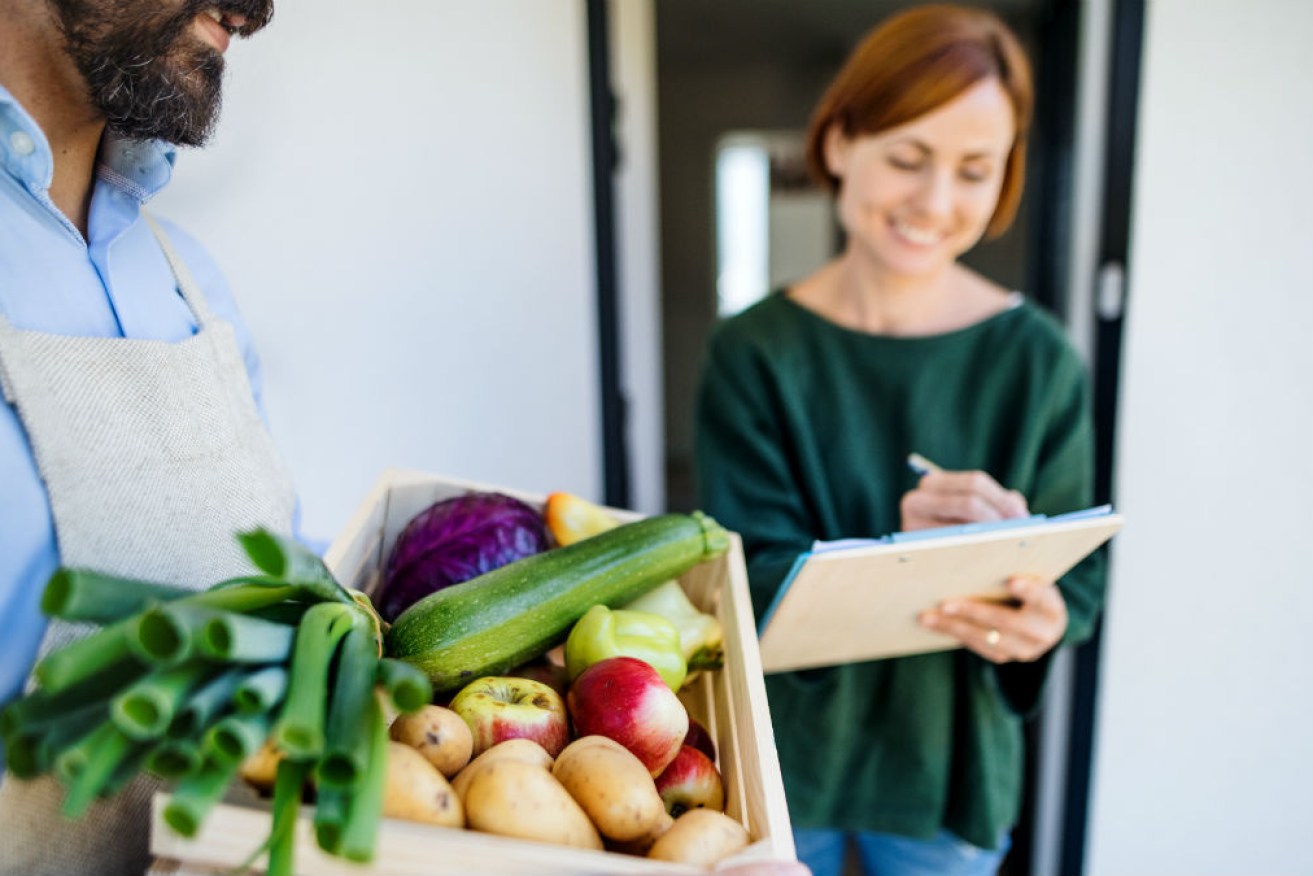Coronavirus lockdown: The spending habits we’ll keep up when we’re ‘free’


The pandemic has exposed more Australians to food and grocery deliveries – a habit that might stick with us. Photo: Getty
Science says it takes the average person 66 days to adopt a new habit, and this could well be represented when the country’s lockdown laws are repealed.
If we take this theory and apply it to our lockdown spending, there could be a lot of industries in trouble.
According to data released by illion and AlphaBeta on Monday, spending on gyms and fitness dried up 94 per cent in the first four months of the year, reflective of the shuttering of gyms around the country in line with COVID-19 restrictions.
Overall, our spending is 20 per cent below what it usually is at this time of year.
Simultaneously, the sale of home fitness equipment boomed.
Even Bunnings was getting a slice of the action, selling workout equipment to meet demand.
So even if gyms are permitted to reopen to customers, they might still find themselves struggling, marketing lecturer Louise Grimmer said.
Dr Grimmer explained that while some will happily return to their exercise routines and classes, others will choose to stay away for health reasons.
While it looks like the end of lockdown is in sight, it’s just the start of the (particularly) economic fallout of the pandemic.

Sausage sizzles are still off the menu at Bunnings, but at least you can get an exercise bike.
“We are experiencing a downturn in the economy. People are suffering from job losses or reductions in wages and salaries or from reduced working hours and this will have a significant impact on people’s ability to pay for classes and gym fees,” Dr Grimmer told The New Daily.
Beyond that, we’ve spent up on home equipment and worked out how to set our own fitness routines. That’s going to be hard to break, as Queensland University of Technology’s Gary Mortimer told us in April.
If people have worked out how they can stay healthy for four to five months at home without going to the gym, they might not renew that $40-a-month membership, Professor Mortimer said.
“There will also be those people who have got themselves into a routine during lockdown that didn’t allow for gym attendance and this pattern of behaviour will stay in place,” Dr Grimmer added.
The big winners
Unsurprisingly, the area of food delivery delivered the greatest increase in spending: Some 156 per cent.
As dine-in options closed, hospitality outlets have had to change the way they do business.
Dr Grimmer said the pandemic had created winners and losers, and ultimately, a post-lockdown world will hopefully reveal a more level playing field.
“Food delivery is not surprising, but the increase is massive,” Dr Grimmer said.
“This is good news for those cafes and restaurants that have been able to pivot their businesses towards takeaway, but the fees associated with food delivery services are likely to be impacting significantly on local businesses – picking up meals rather than having them delivered will help local eateries slash those fees.”
Many shoppers have also altered their grocery shops, perhaps opting for the smaller, independent store, or shopping exclusively at places that deliver their hauls.
This is something that’s likely to continue, even once restrictions are relaxed, Dr Grimmer predicted.
“The trend may be towards smaller stores as many people look to support local shopping and have more awareness about local produce and suppliers and look to support smaller businesses,” she said.
“Online shopping and home delivery from larger supermarkets though will continue to grow as many consumers have now had a good five- to six-week period where they have often been forced to shop online and this has broken down some of the barriers that people perceived with regard to online grocery shopping.”
This could spell some profit trouble for the big supermarkets, as the after-effects of the early pandemic panic buying start to show: Many customers have pantries full of non-perishables – they don’t need to restock on those for a few months.









